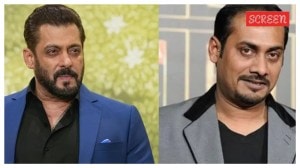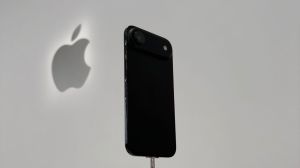US to assist Pak, Afghan to solve border terror issues
George W Bush has offered assistance to Afghanistan and Pakistan in solving the ‘testy border situation’.

US President George W Bush on Monday offered assistance to Afghanistan and Pakistan in solving the ‘testy border situation’ and at the same time warned Iran that it would face ‘ever-tighter’ sanctions if it did not curb its nuclear development programme.
Bush, wrapping up his European tour, called for leaders of Afghanistan and Pakistan to hold talks and share intelligence as both confront notorious Taliban leaders.
“There’s a lot of common ground,” Bush said. “It’s in no one’s interest that extremists have a safe haven from which to operate. Obviously, it’s a testy situation there.”
Bush, however, refused to endorse Afghanistan President Karzai’s threat to send troops in Pakistan to flush out terrorists.
Karzai had on Sunday said that Afghanistan has a right to send troops into Pakistan because Taliban militants cross over from Pakistan to attack Afghan and foreign forces.
Last week, US aircraft dropped bombs along the Afghan-Pakistan border, an incident the Pakistan army said killed 11 of its paramilitary forces.
Answering to a query on Iran’s nuclear programme, Bush said, “We will support Iran to acquire civilian nuclear power. But enriching Uranium, no. We will provide for their nuclear power plants and we will collect the fuel. In this we support the Russian proposal.”
At a joint press conference after their talks at 10, Downing Street, Both Bush and Brown warned Iran that it would face ‘ever-tighter sanctions’ if it did not curb its nuclear development programme.
“Britain wants to do everything possible to maintain dialogue with Tehran but it must not choose the path of confrontation,” Brown said.
“If Iran continues to ignore UN resolutions, to ignore our offers of partnership, we have no choice but to intensify sanctions,” Brown said.
He said Britain would urge Europe to impose further sanctions. Action would also be taken to seize the overseas assets of the country’s biggest bank and a new phase of sanctions would start on oil and gas.
“I will repeat that we will take any necessary action so that Iran is aware of the choice it has to make to start to play its part as a full and respected member of the international community – or face further isolation.”
Brown also pledged more British troops to Afghanistan and said that the military presence in that country would be boosted to its ‘highest level’ to keep the pressure on the Taliban.
More than 200 engineers, logistical staff and military training experts have been earmarked to start a tour of duty in the next few weeks. This would bring the UK’s overall strength in Afghanistan to more than 8,000, most of whom are based in the volatile Helmand province.
Bush also admitted that the situation in Afghanistan was ‘tough work’ but said it was essential in the interests of peace and security.
“The march to democracy is never smooth.”
He said they would both make decisions about troop numbers ‘based on conditions on the ground’ and advice from their commanders rather than on politics.
Brown praised President Bush for his ‘steadfastness and resolution in rooting out terrorism in all parts of the world’ and described him as a ‘true friend of Britain’.
In turn, Bush thanked Brown for his ongoing commitment in Iraq and Afghanistan and for his ‘clear and strong’ statement on Iran.
“The first thing about Gordon Brown, he is tough on terrorism, and I appreciate it,” he said.
“So should the British people… You have been strong on Afghanistan and Iraq and I appreciate that. But more importantly, the people of Afghanistan and Iraq appreciate it.”
“I have no problem with how Gordon Brown is dealing with Iraq. He has been a good partner,” Bush said.
On Iraq, Brown said there was ‘still work to be done’ despite the progress being made and insisted that Britain would continue to play its part.
Bush once again defended his stance on Iraq and asked if he, like former British Prime Minister Tony Blair, looked back with a slightly different view in hindsight.
“Removing Saddam Hussein was not wrong. It was the right thing to do, the right thing to do for our security,” he said.
“I think the real question is will we have the willpower and patience to help the Iraqis build a democracy in the heart of the Middle East.”
Monday’s talks came after violent anti-war protesters caused havoc in Westminster and across the capital.
Police made 25 arrests and 10 officers were injured in the clashes on Sunday during a demonstration against President Bush in Parliament Square.
Placards branded him as ‘terrorist’. Three people have already been charged in connection with the demonstration.
Photos



- 01
- 02
- 03
- 04
- 05



























